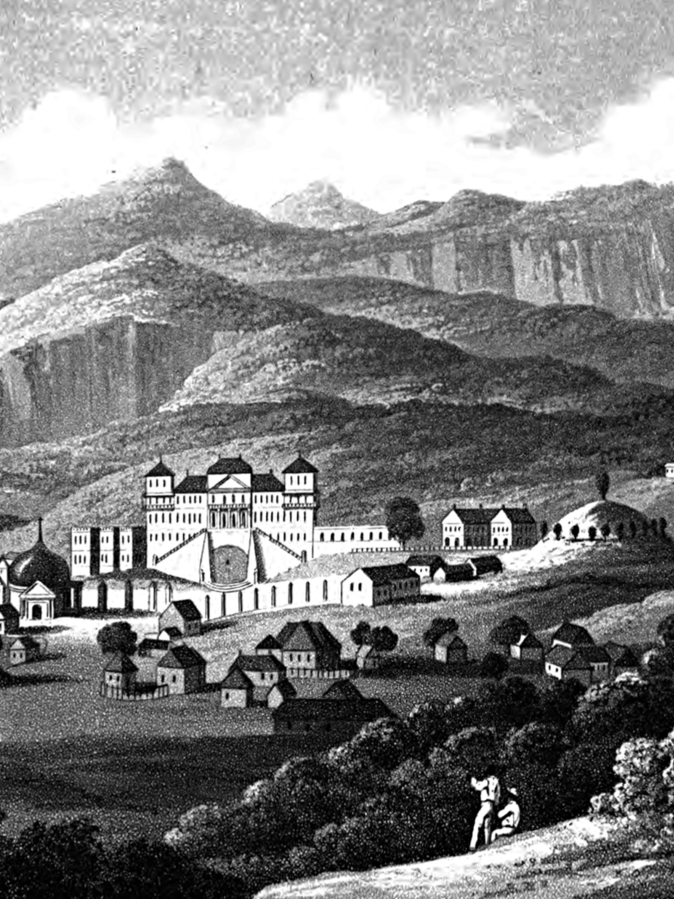Presented by Penn's Department of French and Francophone Studies
1814 was a watershed moment in the history of postrevolutionary Haiti, fatefully divided between the leadership of Henry Christophe in the north and that of Alexandre Pétion in the South. That year saw the launch of a neocolonial espionage mission to pressure Haitian leaders to resubmit to French authority, followed by the emergence of a radical new literature of anticolonialism in the monarchy of Christophe addressed directly to the regime’s adversaries. In this talk, Doris L. Garraway explores the impact of the spy mission on Haitian writing by focusing on the textual medium through which Haitian sovereigns acted and engaged with France and with one another during the period of nonrecognition: the letter. Taking seriously the power of letters to expose, contest, and disarm neocolonialist threats and deception, Garraway examines northern Haitian writers’ invention of a literary genre– what she calls ‘open access epistolarity’— as both a counter-espionage strategy and the principal modality of the performance of sovereignty necessitated by this triangulated international crisis. Situating this writerly practice in the context of ongoing tensions between north and south of Haiti as well as the problem of nonrecognition, Garraway tracks the potentialities and risks of the north’s extensive letter-writing campaign for the monarchical sovereignty it was meant to affirm.
 Doris L. Garraway is associate professor of French at Northwestern University. Her research interests include early modern and modern Francophone Caribbean literature and historiography, the Haitian Revolution, early modern Francophone cultures, decolonial theory, law, theater, and performance. She is the author of The Libertine Colony: Creolization in the Early French Caribbean (Duke UP, 2005; reprint 2008), and editor of Tree of Liberty: Cultural Legacies of the Haitian Revolution in the Atlantic World (University of Virginia Press, 2008). She has published articles on a range of authors including Marie Chauvet, Aimé Césaire, Patrick Chamoiseau, Denis Diderot, Baron La Hontan, Moreau de Saint-Méry, and Haitian revolutionary figures Toussaint Louverture, Jean-Jacques Dessalines, and Baron de Vastey. She is currently completing a book manuscript entitled Liberty’s Majesty: Monarchy, Racial Sovereignty, and the Intellectual State in the Long Haitian Revolution. Garraway has been awarded fellowships from Princeton University’s Davis Center for Historical Studies, the National Humanities Center, the John Carter Brown Library, and the Schomburg Center for Research in Black Culture.
Doris L. Garraway is associate professor of French at Northwestern University. Her research interests include early modern and modern Francophone Caribbean literature and historiography, the Haitian Revolution, early modern Francophone cultures, decolonial theory, law, theater, and performance. She is the author of The Libertine Colony: Creolization in the Early French Caribbean (Duke UP, 2005; reprint 2008), and editor of Tree of Liberty: Cultural Legacies of the Haitian Revolution in the Atlantic World (University of Virginia Press, 2008). She has published articles on a range of authors including Marie Chauvet, Aimé Césaire, Patrick Chamoiseau, Denis Diderot, Baron La Hontan, Moreau de Saint-Méry, and Haitian revolutionary figures Toussaint Louverture, Jean-Jacques Dessalines, and Baron de Vastey. She is currently completing a book manuscript entitled Liberty’s Majesty: Monarchy, Racial Sovereignty, and the Intellectual State in the Long Haitian Revolution. Garraway has been awarded fellowships from Princeton University’s Davis Center for Historical Studies, the National Humanities Center, the John Carter Brown Library, and the Schomburg Center for Research in Black Culture.



